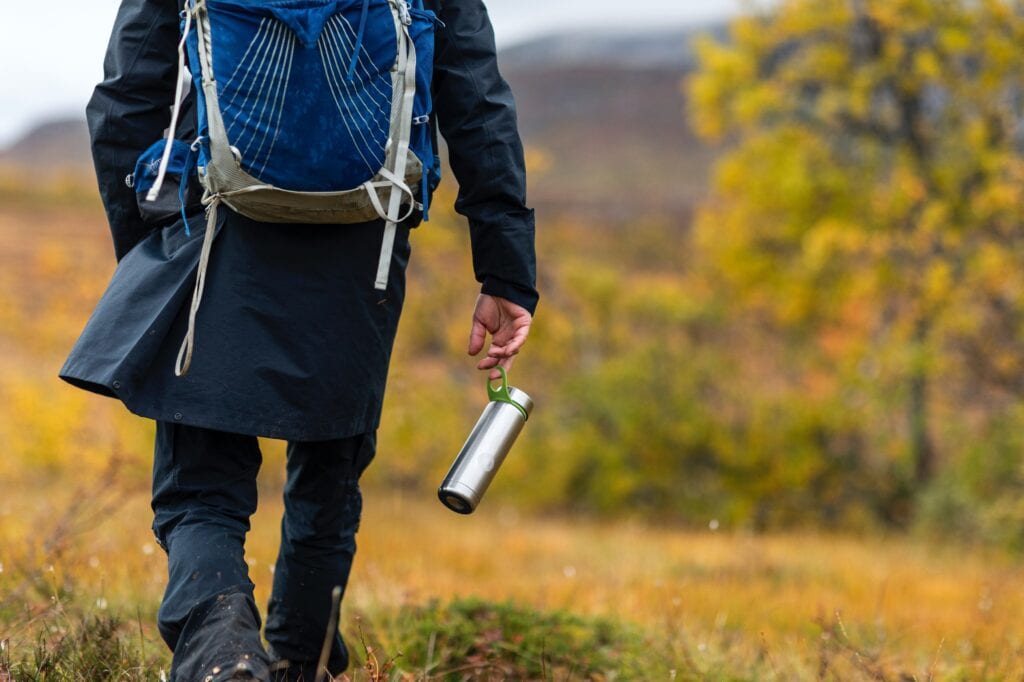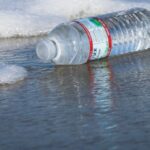If you plan to tackle a day-long hike, it is essential to be prepared with the right gear and supplies.
The top of the list is water.
Every experienced hiker knows that having enough water on hand is key to staying safe, hydrated, and energized throughout your excursion. It is as important as carrying a first aid kit. Knowing how much water to bring on a hike is an important part of any outdoor adventure and can make or break your experience in the great outdoors. So, how much water or how many water bottles should you bring with you?
In this article, we will cover all the factors that go into calculating when it comes to carrying water with you on your next hike.
General Rule to Carrying Water on a Hike
The water you need depends on several factors we will discuss below. Generally speaking, drinking about half a liter (about two cups), or 170z of water every hour you are hiking, is a good rule of thumb. You should consume at least one cup of water every half hour to effectively treat water shortage or if you feel thirsty.
For strenuous hiking under direct sun, consider bringing a hydration pack or investing in a water filtration system to help you filter water.
Factors Determining the Amount of Water for Backpacking Trips
The given factors play an important role in calculating the liter of water you need to avoid dehydration and heat exhaustion on a hike.
Weather Conditions
Weather conditions play an important role in knowing the amount of water you should bring while hiking. Hiking in moderate temperatures may require you to bring only one or two water bottles. On the other hand, some experienced hikers can survive a one or two-hour hike with only one water bottle.
However, when hiking in hot weather, it is highly recommended for your safety to carry more water. Let’s say one water bottle can carry one liter (34 oz) of water. You should bring at least four or five water bottles in hot weather. You can also carry a water filter if your route has a reliable water source.
On the other hand, drinking cold water may seem unpleasant when hiking in cold weather. However, the importance of drinking water is the same. In this case, you should carry an insulated water bottle to keep hot water intact despite the cool weather.
Hiking Duration
The duration of a hike is one of the main factors determining the amount of water you need. One hour of hiking or a short day hike might require anywhere from half to two liters (17oz to 68oz) to function properly, depending on the climate and your individual needs. However, for extended hikes lasting multiple days or even weeks, the total amount of water you carry should increase exponentially.
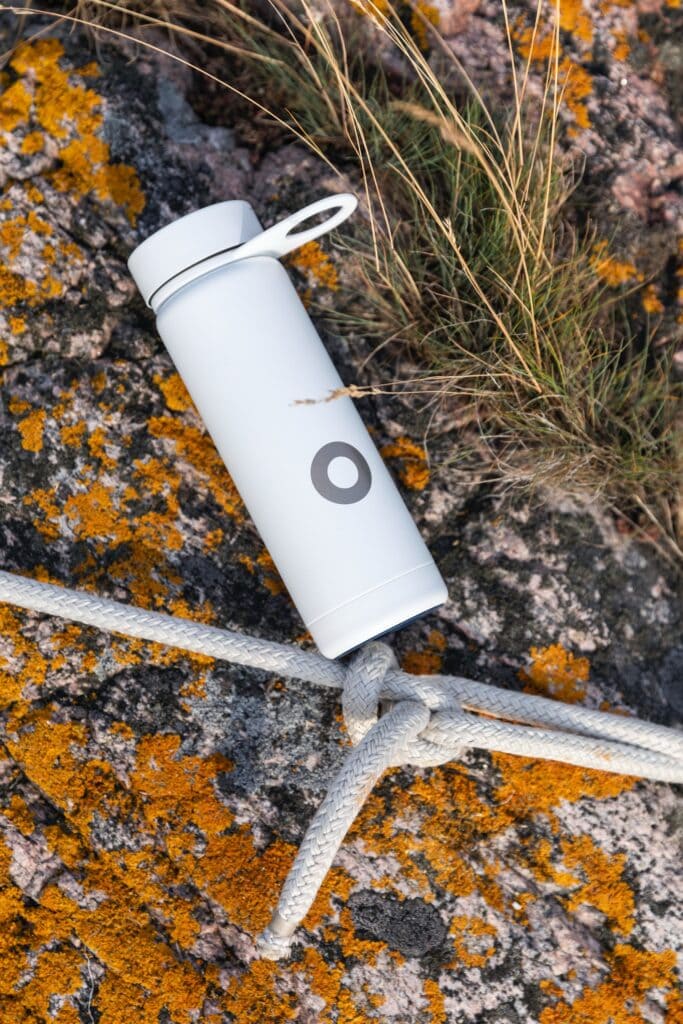
Water Sources on the Intended Route
With a planned hiking trip in mind, water availability is one of the most important factors. You should always consider water sources along the route when determining how many water bottles you need to stay hydrated. Then, using natural elements like rivers and streams, you can refill your plastic bottles or hydration reservoirs.
However, you can not take a natural water fountain for granted. You must ensure that water comes from a reliable source, not from contaminated or polluted areas. Drinking polluted water can cause more damage than good. If you come up with reliable wild water sources along the route, you will reduce your burden of carrying extra liters of water.
Body Weight and Fitness Level
Regarding hiking, your body type and physical health play a major role in determining how much water you need. If you are an average-sized person and fit, the general rule of thumb is half a liter (17oz) per hour. So, one little water bottle is enough for two hours. However, if you are overweight or significantly bigger than average, consider carrying more water as your body has a higher sweat rate than average.
Similarly, suppose you belong to a group of people with physical health issues such as migraine headaches or diabetes. In that case, it is highly recommended to carry more water than the general rule suggests.
Hydration Tips
Follow the given hydration tips to enjoy hiking even on hot days.
- Drink at least one cup of water every half hour.
- Invest in a hydration pack or water filtration system to provide clean drinking water on the go. Filtered water can reduce your pack weight to a great extent.
- Carry insulated bottles for cold weather hikes to keep hot water intact for long hours. You can avoid drinking cold water by doing so.
- Bring more than the average water when going on a hot weather hike.
- Remember to rehydrate after a long hike.
- Eat plenty of water-filled fruits such as oranges and watermelons while in the wilderness.
- Pack an electrolyte replacement drink to help you on longer hikes.
- Stay away from caffeinated drinks as much as possible because they further dehydrate your body.
- Drink water in small sips throughout the hike.
- Keep an eye out for potential water sources along the route, and bring a filter with you if necessary.
- Wear light-colored, lightweight clothing to help keep your body cool in hot weather.
- Make sure to rest in the shade and out of direct sunlight during hot hikes.
- Bring water in larger quantities if you are hiking with children or older people, as their bodies need more hydration.
- Always plan and consider the duration and climate of your hike when deciding on how much water you need to carry.
- Lastly, never underestimate the importance of drinking water and staying hydrated while hiking. Your health is the most important factor in enjoying a safe and successful hike.
The key takeaway is that proper hydration is essential for any hiker, regardless of their fitness level or body type. Remember to plan ahead and always ensure you have enough water to stay safe and healthy while out in the wild.
How Can You Tell if You Are Dehydrated
Dehydration can severely affect your health, and it is important to stay aware of the signs that you are not getting enough water. Thirst is one of the most common dehydration symptoms, but also look for fatigue, lightheadedness, headaches, and impaired cognition as possible clues that your body needs more fluids. Also, keep an eye out for dark-coloured urine.
How to Treat Dehydration on Hiking
If you or someone in your group is feeling dehydrated, the first step should be to have them rest and relax in a shady and cool area. Then, encourage them to take sips of water and electrolytes to help replenish bodily fluids. Use wet towels or cold compresses around their neck and feet if necessary. Keep an eye on their condition; if symptoms do not improve, it is better to seek professional medical attention.
Effective Methods of Carrying Water on Hikes
-
Water Bottles
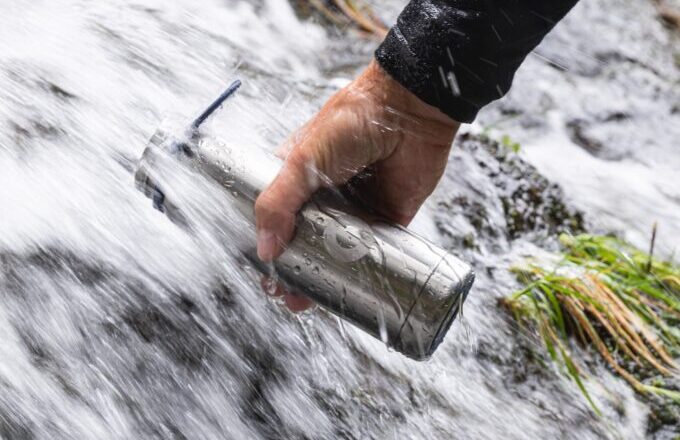 The most common way hikers carry their water is in traditional plastic or stainless steel bottles.
The most common way hikers carry their water is in traditional plastic or stainless steel bottles.
These bottles are lightweight, easy to store, and don’t require any special setup or extra accessories.
However, it is important to remember that these bottles are limited in capacity, so if you need more than 2 liters (68oz) of water, this may not be the best option.
-
Hydration Bladders
Hydration bladders are large pouches that fit inside a backpack and hold up to 3 liters (101 oz) of liquid. They often come with straps so you can hang them from shoulder straps for easy access while hiking.
-
Collapsible Water Bottles
Collapsible water bottles are an excellent option for hikers who want a lightweight bottle that takes up minimal space when empty. These bottles come in sizes ranging from 1 liter up to 5 liters (34oz to 169oz) and feature flexible silicone walls that collapse when empty.
What Kinds of Drinks Are Good for a Hike
When you are out on the trail, it is important to stay hydrated. However, with all the different options for drinks available, it can be hard to decide which one is best for you and your hiking trip. So, let’s look at some of the best drinks for a hike.
Sports Drinks
Sports drinks are popular among hikers and athletes. They can provide electrolytes and carbohydrates that help replenish energy. However, it is important to note that most sports drinks contain large amounts of sugar and calories, so you should only consume them moderately or when you need extra energy.
Water
Good old-fashioned water is the classic choice for staying hydrated while hiking. It provides essential fluids without any additional calories or artificial ingredients. Moreover, it is usually easy to find along trails with sources like streams and rivers.
Coconut Water
Coconut water has become increasingly popular in recent years as an alternative source of hydration for hikers due to its high levels of electrolytes such as sodium and potassium. It also contains natural sugars that can boost energy levels during moderate activity. However, remember that coconut water spoils quickly, so consume it within a few hours.
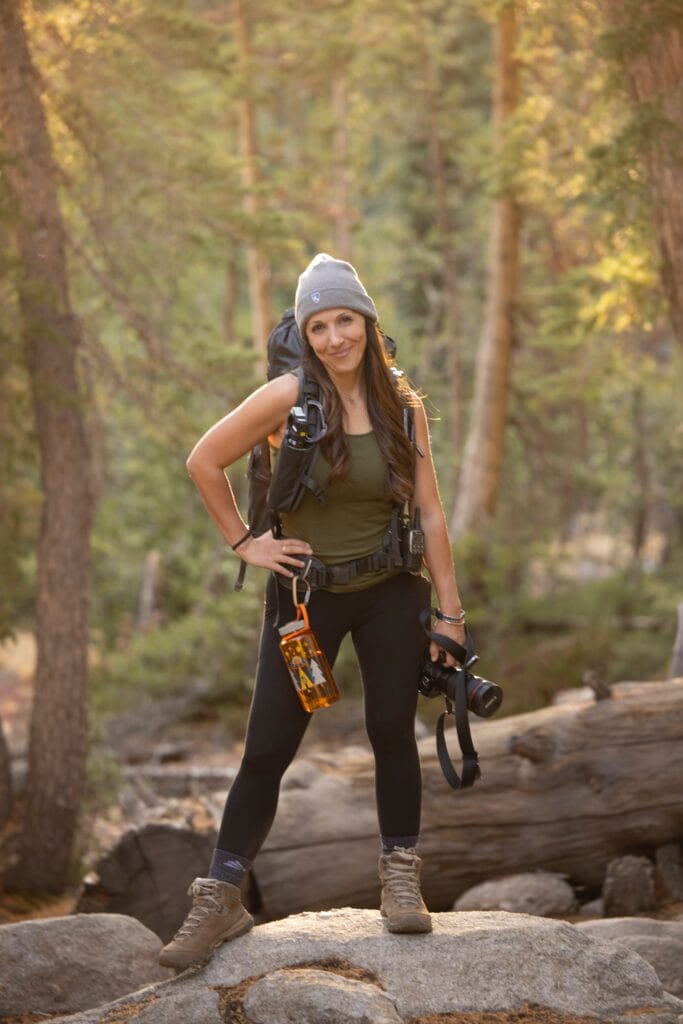 How Much Water Do I Need for a 10-Mile Hike?
How Much Water Do I Need for a 10-Mile Hike?
The amount of water you need for a 10-mile hike will depend on several factors, such as the route, temperature, and activity level. Generally speaking, it is recommended to bring at least 2 liters (about 8 cups or 68 oz) of water per person for this distance. However, if the weather is hot or humid, you should bring even more to stay hydrated.
Additionally, if you are going to be engaging in strenuous activity (like scrambling up a mountain), it is recommended that you bring even more water with you. Finally, remember to take breaks along the way and drink regular sips of water throughout your hike to ensure proper hydration.
How Much Water Should I Drink on a 4-Hour Hike?
For a 4-hour hike, bringing two liters (about eight cups 68oz) of water per person is better. Additionally, you should drink at least a few frequent sips of water every 15 minutes while on the trail. Staying hydrated during a hike will help prevent fatigue and ensure you can safely complete your journey. It is also a good idea to bring snacks with you in case your energy levels start to dip while out on the trail.
Conclusion
Staying hydrated while hiking is essential. It prevents fatigue and keeps energy levels up so that hikers can enjoy their outing without feeling drained afterwards. To ensure that you stay hydrated outdoors, try bringing a half liter (about two cups or 17oz) of liquid per hour of hiking. In addition, if you go for a long walk or hiking route, you should invest in an effective water purification system.
Furthermore, you can invest in items like hydration packs or water filtration systems if necessary. Additionally, various sports drinks, coconut waters, and herbal teas can be consumed during hikes for an added boost. These tips will ensure that all hikers have a safe and enjoyable time exploring nature’s wonders.

